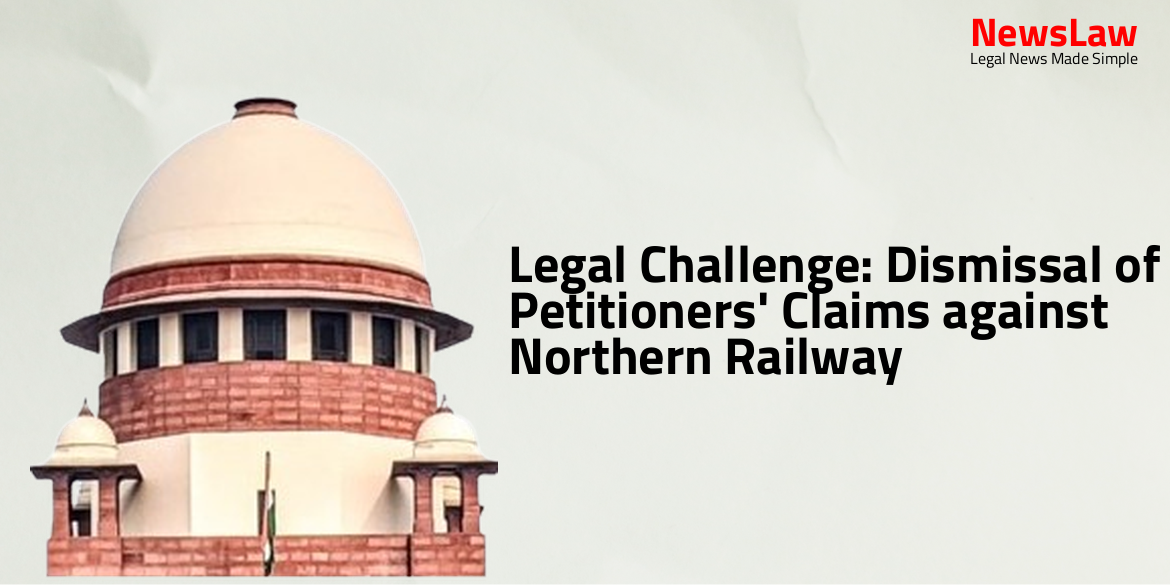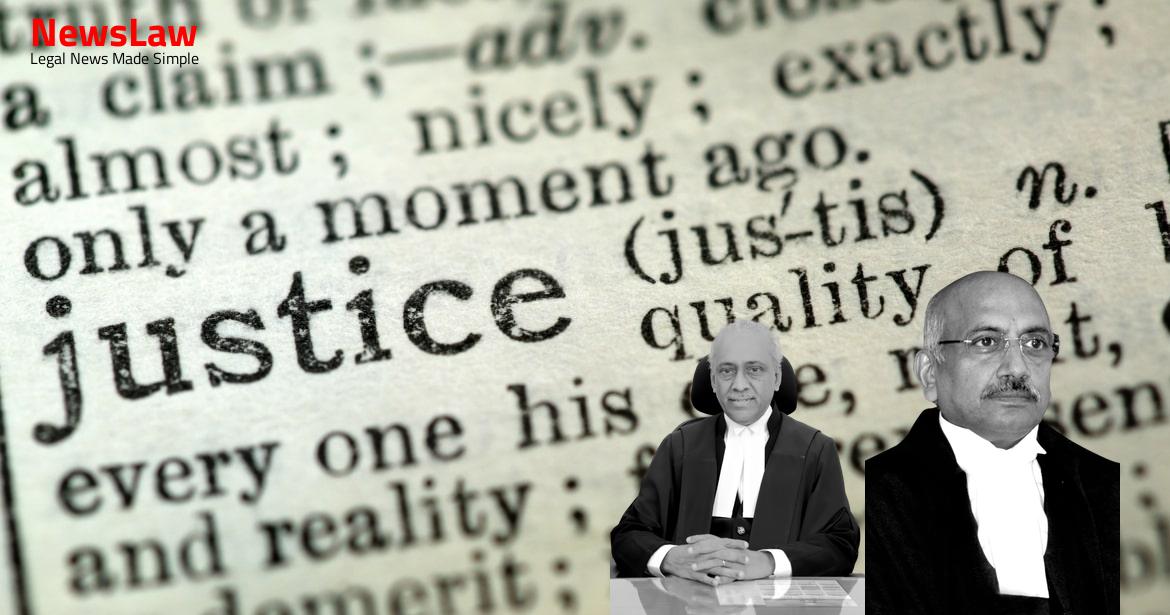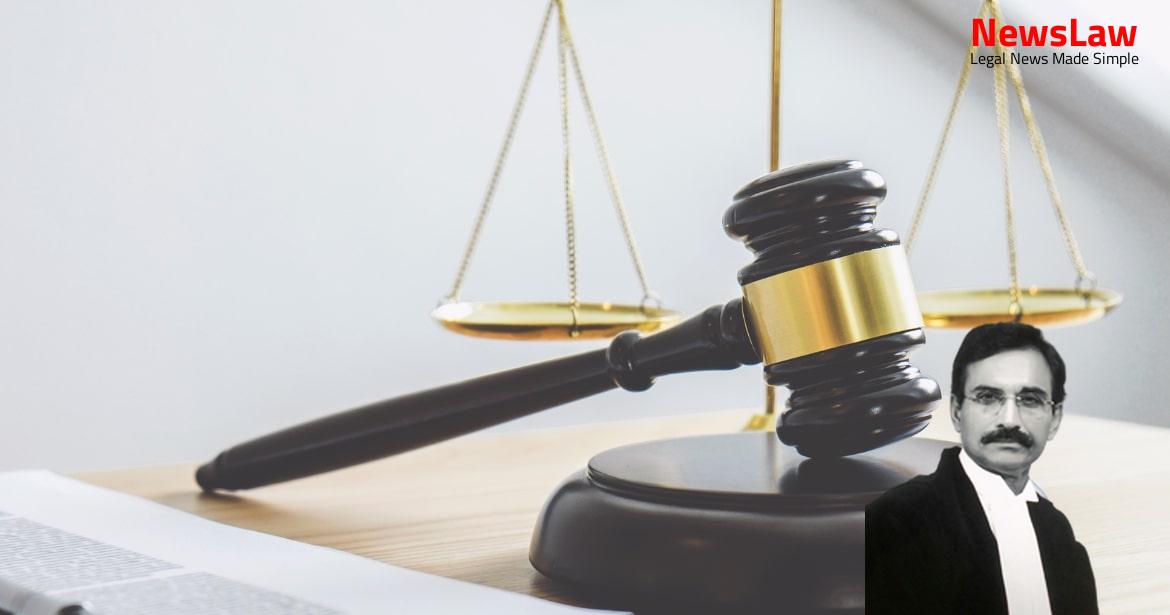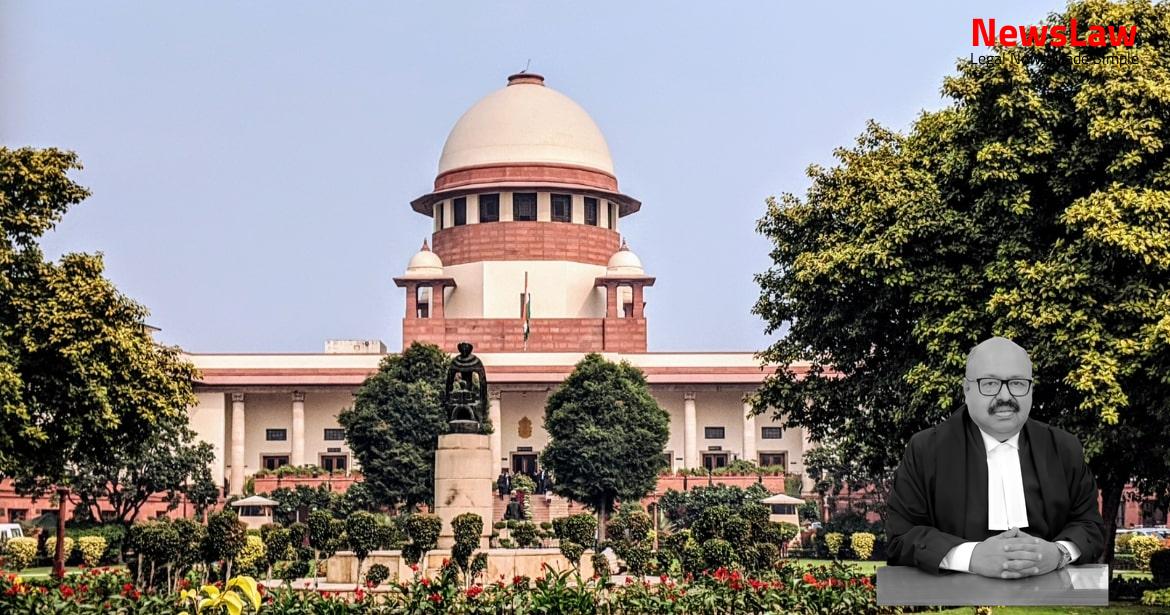In a significant ruling by the Delhi High Court, the claims brought by the petitioners against Northern Railway have been dismissed. The court’s decision holds implications for the ongoing dispute between the parties. Stay tuned to understand the details of the judgment and its impact on the case involving the petitioners and Northern Railway.
Facts
- The petitioners were directed to vacate their MPS by 27.02.2023 due to a force majeure event.
- Petitioner no.1 operates three MPS at Bareilly Railway Station, Petitioner no.2 operates one MPS at Moradabad Railway Station, and Petitioner no.3 operates one MPS at Haridwar Railway Station.
- The petitioners were initially running stalls/trolleys governed by Commercial Circular No. 96 of 2007, but were forced to convert them to MPS by Northern Railway in 2017 under Commercial Circular No. 61 of 2017 (‘2017 Policy’).
- Petitioners and Northern Railway executed Master License Agreements on different dates, specifying a tenure of five years from the date of conversion with no provision for extension or renewal.
- The petitioners challenged Clause 5 and Clause 11 of the 2017 Policy, the Master License Agreements, and the directive to vacate their MPS in an ongoing case.
Arguments
- The petitioners argue that their licenses have expired by efflux of time and they have no right to compel the respondents to extend the license.
- They claim that the 2017 Policy is legally sound and non-arbitrary, universally applicable to stall/trolley owners without discrimination.
- The petitioners rely on a Karnataka High Court judgment dismissing a similar challenge against the 2017 Policy as support.
- They argue that the 2017 Policy clearly states no renewal or extension of the license, and the petitioners cannot contest it post-license expiry.
- Reference is made to the benefits the petitioners availed under the 2017 Policy, making it unfair to challenge the policy now.
- Citing specific cases, the petitioners allege that paragraph 1744 of the Indian Railways Commercial Manual is violative of certain sections of the Railways Act.
- The petitioners claim that the demands raised by the respondents are rooted in paragraph 1744 and challenge its existence.
- It is contended that the refusal to renew the petitioners’ licenses is arbitrary and infringes on their fundamental rights.
- The petitioners also argue against the extension granted by the respondents, comparing it with other cases where longer durations were provided.
- They emphasize a lack of fair competition under the 2017 Policy and raise concerns about converting their stalls under coercion and duress.
- The petitioners express a legitimate expectation for license renewal without tender processes, citing cases to support their argument.
- The petitioners assert that the jurisdiction of the court extends to decide the petitions and challenge exclusive jurisdiction clauses in license agreements.
- Arguments are made against the jurisdiction of the court based on the situs of the Railway Board and the arbitration clause in the 2017 Policy.
- Reference is made to cases highlighting the absence of a fundamental right to trade at a specific public space, subject to reasonable restrictions.
- Petitioner signed a contract for a non-renewable period of five years.
- The contract was not under the Catering Policy but a different policy.
- The petitioner cannot revert to an old policy after enjoying the benefits of the contract.
- The Supreme Court judgment cited by the petitioner was related to Catering Policy and not applicable to the current case.
Analysis
- The contention of the petitioners that they were compelled to convert their stalls/trolleys to MPS is untenable.
- The licenses held by the petitioners are subject to the terms and conditions outlined in the 2017 Policy.
- The 2017 Policy explicitly renders the license non-renewable.
- The challenge to Clause 5 and 11 of the 2017 Policy is clearly unsustainable.
- The licenses of the petitioners were extended by a period of 68 days on account of a force majeure event i.e., government imposed lock-down due to Covid-19.
- The implementation of force majeure due to Covid-19 was outlined in a letter dated 21.05.2020 issued by the Railway Board.
- The specific part of the judgment focused on detailing the arguments presented by the parties.
- It discussed the relevant legal principles and precedents related to the case.
- The court analyzed the evidence and submissions made by the Original Names in this section.
- The judgment emphasized the importance of considering all aspects before reaching a decision.
- This part of the judgment laid the groundwork for the final decision that was to be made.
- The Karnataka High Court in judgment dated 19.02.2024 rejected a challenge to the 2017 Policy in the case titled Gulfeeza Begum v. Union of India.
- The court observed that past relaxation in policy for changes in examination pattern/syllabus cannot be claimed as a right by petitioners seeking mandamus for further relaxation.
- A writ of Mandamus cannot be issued to direct the respondents to enact laws or frame rules under Article 226 of the Constitution.
- Mandamus is applicable for enforcing fundamental or statutory rights or duties related to them.
- For issuance of a Mandamus, a breach or threat to breach fundamental, statutory, or enforceable equitable right is necessary.
- Courts have jurisdiction to declare laws unconstitutional but not to delve into operational intricacies of decisions made.
- Judicial review of a policy decision is distinct from mandamus to frame policy a certain way.
- Legitimate expectation does not always entitle expectant to relief; public interest, policy change, or other reasons may negate it.
- Public bodies like the respondent Board cannot arbitrarily decline license renewals without rational purpose.
- Individual license agreements and the 2017 Policy both contain an arbitration clause for grievances related to insufficient extensions due to the Covid-19 situation or for claiming damages.
- Petitioners are allowed to invoke the arbitration clause and initiate relevant proceedings if they feel aggrieved or wish to claim damages.
- This provision applies to both licensees who have executed formal agreements and those who are yet to do so.
Decision
- Existing bookstalls, miscellaneous stalls, and chemist stalls have the option to convert to Multi-Purpose Stalls by paying the required license fee.
- New allotments for stalls will follow standardized procedures after the current agreements expire.
- Existing stalls can be converted into Multi-Purpose Stalls as per the policy.
- Existing licensees have the option to convert their stalls into Multi-Purpose Stalls for a 5-year tenure.
- A 3-month period is granted for existing licensees to vacate stalls after opting for conversion to Multi-Purpose Stalls.
- Renewal of license is discussed in the context of converting miscellaneous stalls to Multi-Purpose Stalls.
- The court deems the petitions as maintainable and dismisses them with rights and remedies kept open.
Case Title: SHRI SANHJAY BAPU TIWATANE Vs. UNION OF INDIA & ORS. (2024:DHC:4452)
Case Number: W.P.(C)-7180/2024



